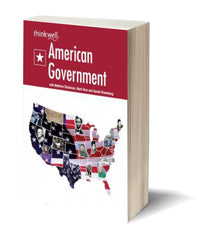5.1 Congress: Our Representatives
5.1.1 A Bicameral Legislative Body
5.1.2 Getting Elected to Congress
5.1.3 Staffs, Perks, and Specialized Offices
5.1.4 Roles of Legislators
5.1.5 Hot Topic: Term Limits
5.2 Congress in Action
5.2.1 Characteristics of the Two Houses
5.2.2 The House
5.2.3 The Senate
5.2.4 How a Bill Becomes Law
5.2.5 Evaluating Congress
5.3 The Office of the President
5.3.1 Being President
5.3.2 Presidential Leadership
5.3.3 The Presidential Staff and Advisers
5.3.4 Hot Topic: Presidential Pardons
5.4 The Roles of the President
5.4.1 Legislative Agenda Setter
5.4.2 National CEO
5.4.3 A World Leader
5.4.4 Hot Topic: Edith Wilson as Petticoat President
5.4.5 Party Leader
5.4.6 Hot Topic: Presidential Character
5.5 The Powers of the President
5.5.1 Powers and Privileges
5.5.2 Checks and Restraints on Presidential Power
5.5.3 Hot Topic: Executive Privilege
5.5.4 Hot Topic: Presidential War Powers
5.6 Divided Government
5.6.1 Controlling Extremes
5.6.2 Lobbying the President and Congress
5.6.3 Hot Topic: The Electoral College
5.7 The Federal Bureaucracy
5.7.1 The Federal Bureaucracy
5.7.2 Hot Topic: The Department of Homeland Security
5.7.3 Policymakers and Implementers
5.7.4 Budgetmaking
5.7.5 Controls on Bureaucracy
5.7.6 Reform Efforts
5.7.7 Case Study: The IRS
5.8 The Federal Court System
5.8.1 Court Powers and Restraints
5.8.2 Prosecution and Defense in Federal Courts
5.8.3 Case Study: Roe v. Wade and the Abortion Movement, Part I
5.8.4 Case Study: Roe v. Wade and the Abortion Movement, Part II
5.9 The Supreme Court
5.9.1 Appointing the Court
5.9.2 Leadership on the Supreme Court
5.9.3 Process and Calendar
5.9.4 Early Decisions That Defined Federal Power
5.9.5 Case Study: Affirmative Action
5.9.6 Case Study: Incorporation
5.9.7 Hot Topic: The Bush Appointments, 2001–2006
5.9.8 Hot Topic: The Obama Appointments






